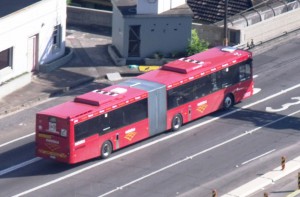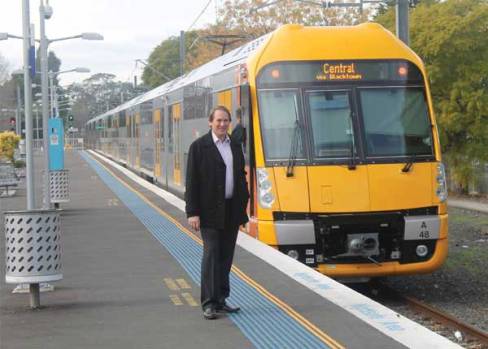
Prime Minister Tony Abbott may have public misgivings about the priority of public transport over new roads in the policy mix, but in the electorally crucial Western suburbs of Sydney and New South Wales, busses have become the post-election battleline for Premier Mike Baird to maintain momentum.
The recently re-elected Coalition state government on Monday announced that it was scheduling another 580 additional bus services, most of them adding frequency and capacity and a new route to the Western suburbs which has long suffered the perception as having less reliable and safe public transport options than suburbs closer to the CBD.
The big push to get more commuters onto public transport, particularly busses, comes as the Baird government attempts to shift more business out of the city and to the West and particularly Parramatta which has had a slew of hi-rise development approved to create second CBD.
One of Sydney’s enduring transport planning problems has been the so-called hub-and-spoke nature of services that have funnelled people and vehicles into an increasingly congested central precinct that naturally constricted by being on a harbour.
That has historically meant that businesses which try to set up in the West have had far fewer transport options, other than cars for staff that need to commute across or through suburbs.
The show piece of the latest splash on busses is the Route 729 already in operation between Mt Druitt and Blacktown via Minchinbury and Doonside which NSW Minister for Transport and Infrastructure Andrew Constance said will provide direct services to Blacktown and Mt Druitt train stations and jobs at Eastern Creek and Arndell Park.
With Sydney’s construction of a second airport at Badgery’s Creek due to create thousands of jobs in the West over coming years, the government has good reason to sink money into improving public transit infrastructure in the region.
“This new service is the first step in updating all bus services to the south of the railway line between Mount Druitt and Blacktown,” Mr Constance said.
“This is in addition to improvements being delivered in Newcastle, including 69 extra weekly bus services for customers in Charlestown, Glendale and Cameron Park from today.”
Public transport and the previous Labor government’s decade-long failure to get an integrated ticketing system working between transit modes became a defining issue during the last two elections, with the new substantial investments and reforms by the Coalition negating the argument that services would decline in favour of toll roads and private car ownership.
Mr Constance said that since coming to office in March 2011, the state Coalition had delivered “more than 10,920 extra bus services, 1,730 extra train services and 220 extra ferry services each week.”
Comment below to have your say on this story.
If you have a news story or tip-off, get in touch at editorial@governmentnews.com.au.
Sign up to the Government News newsletter

